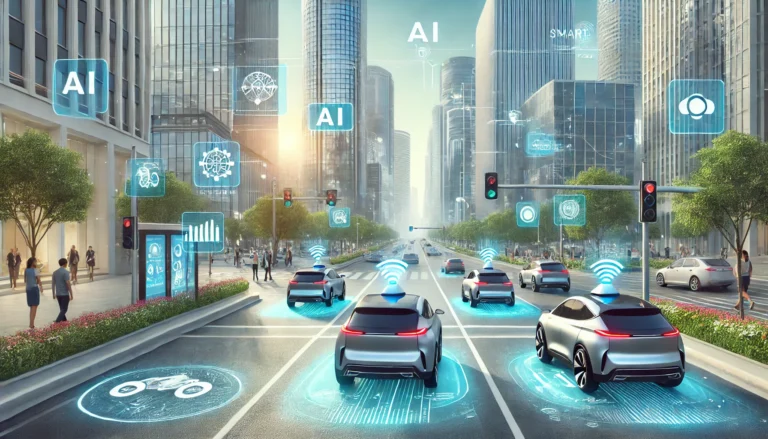
Artificial Intelligence (AI) represents a revolutionary field of computer science aimed at creating machines capable of performing tasks that typically require human intelligence. The roots of AI can be traced back to the mid-20th century when pioneers like Alan Turing and John McCarthy laid the groundwork with theories and early experimentation in machine learning. Over the decades, AI has evolved from basic computational algorithms to advanced neural networks and deep learning systems.
AI is categorized into various types, with the most prominent being narrow AI, general AI, and superintelligent AI. Narrow AI, also known as weak AI, specializes in a single task or a narrow range of tasks. For instance, voice assistants like Siri or Alexa, and recommendation algorithms used by streaming services and online retailers, fall under this category. These systems are highly effective in their specific domains but lack the ability to perform tasks outside of their programmed capabilities.
General AI, on the other hand, aspires to replicate human cognitive abilities, enabling machines to solve diverse problems and undertake a variety of tasks akin to a human being. While we have yet to achieve true general AI, current advancements are gradually edging closer, with research focusing on creating more adaptable and context-aware systems.
Superintelligent AI, a concept primarily explored in theoretical research, envisions machines surpassing human intelligence and capabilities across virtually all domains of interest. Although this level of AI is still speculative and raises substantial ethical and safety concerns, it underscores the enormous potential and transformative impact AI could have.
In today’s landscape, AI is making significant strides across various sectors including healthcare, finance, automotive, and entertainment. For example, AI-driven diagnostic tools are improving patient outcomes, while autonomous vehicles are being developed to enhance transportation safety and efficiency. In finance, AI algorithms are revolutionizing risk assessment and fraud detection, and in entertainment, AI is personalizing user experiences to unprecedented levels.
AI’s rapid development and integration into daily life highlight its critical importance and promise in the modern era. The continuous push for innovation in AI not only drives technological advancements but also poses profound questions about the ethical and societal implications of intelligent systems. As we proceed further into the 21st century, understanding and harnessing AI’s potential will be pivotal in shaping the future of our world.
The Core Importance of AI in Today’s World
Artificial Intelligence (AI) has become a cornerstone in the contemporary world, significantly transforming various sectors through its capability to enhance productivity, enable new forms of communication, and solve intricate problems. At its core, AI technologies are designed to mimic human intelligence, offering unprecedented scalability, efficiency, and precision in tasks that were previously reliant on human intervention. In an era where data is paramount, AI’s ability to analyze vast amounts of information and generate actionable insights is invaluable.
In healthcare, AI is revolutionizing diagnostic procedures and treatment plans. Machine learning algorithms can process medical data more swiftly and accurately than human practitioners, identifying patterns and anomalies that might be overlooked. This leads to early detection of diseases and personalized treatment strategies, ultimately improving patient outcomes. Similarly, in the financial sector, AI-driven tools such as robo-advisors provide personalized investment strategies, while fraud detection systems mitigate potential threats by identifying unusual patterns of behavior.
Communication has also been redefined through AI, from voice-activated virtual assistants that streamline daily tasks to sophisticated language processing systems that break down language barriers. These innovative solutions not only improve user experience but also create opportunities for global collaboration and inclusivity. Moreover, AI’s precision in executing repetitive and mundane tasks allows human resources to focus on more creative and strategic endeavors, accelerating productivity and innovation across industries.
Furthermore, AI’s ability to scale solutions cannot be overstated. Automated systems powered by AI can handle tasks at a volume and speed unattainable by humans, making processes more efficient and reducing costs substantially. For instances like supply chain management and customer service, AI ensures that operations remain smooth and responsive despite fluctuations in demand.
Ultimately, the core importance of AI lies in its versatility to adapt and improve various aspects of today’s world, driving progress and ushering in a future where tasks are performed with heightened efficiency and accuracy. The impact of AI is a testament to its integral role in shaping the contemporary landscape.
“`html
AI in Daily Life
Artificial Intelligence (AI) has seamlessly woven itself into the fabric of daily life, enhancing convenience and personalization in ways previously unimaginable. A prime example of this integration is the proliferation of virtual personal assistants such as Apple’s Siri, Amazon’s Alexa, and Google Assistant. These AI-powered entities perform a myriad of tasks, from setting reminders and sending messages to controlling smart home devices, providing weather updates, and even making shopping lists, thereby streamlining everyday activities for users.
In the realm of smart home devices, AI has significantly transformed how individuals interact with their living spaces. Smart thermostats like Nest learn homeowners’ schedules and preferences, adjusting temperatures automatically to optimize energy consumption and comfort. Meanwhile, intelligent lighting systems and security cameras contribute to a safer and more energy-efficient home environment. The automation and adaptability of these devices represent the practical benefits of AI, making homes not only smarter but also more efficient and responsive to human needs.
The impact of AI extends beyond the confines of the home into the digital spaces people frequent. On streaming services such as Netflix and Spotify, AI recommendation algorithms analyze user behavior and preferences to curate personalized content. By predicting what viewers and listeners are likely to enjoy, these algorithms ensure a continuous stream of tailored entertainment, thereby significantly enhancing user experience and satisfaction.
Similarly, in the domain of e-commerce, AI-driven recommendation engines on platforms like Amazon and eBay suggest products based on previous purchases, searches, and browsing habits. This personalization leads to more informed purchasing decisions, improving the overall shopping experience and potentially increasing customer loyalty. Additionally, AI applications in customer service, such as chatbots, provide instantaneous assistance, addressing inquiries and resolving issues efficiently.
From virtual assistants and smart home technology to personalized recommendations on media and shopping platforms, AI is undeniably influencing and improving the daily lives of individuals. These advancements underscore the pervasive role of AI in augmenting convenience, personalization, and user satisfaction in today’s technology-driven world.
“`
AI in Business and Industry
Artificial intelligence (AI) has revolutionized the business landscape, imparting profound impacts across numerous industries. In essence, AI applications in automation, data analysis, customer service, and supply chain management have become cornerstones of modern corporate strategy, enabling unprecedented levels of efficiency and innovation.
In manufacturing, AI-driven automation ensures precision and reduces human error, optimizing production lines and facilitating predictive maintenance. For instance, factories powered by AI can anticipate machinery breakdowns and schedule maintenance accordingly, which significantly reduces downtime and operational costs.
Retail sectors benefit immensely from AI through enhanced data analysis and personalized customer experiences. AI algorithms analyze vast amounts of customer data to predict buying patterns and preferences, enabling retailers to tailor their offerings and marketing strategies to individual consumers. As a notable example, companies like Amazon utilize AI to recommend products, effectively driving sales and augmenting customer satisfaction.
In the automotive industry, AI has spurred advancements in autonomous driving technology and smart manufacturing processes. Self-driving cars, equipped with AI systems, are becoming more prevalent as they promise greater safety and efficiency on the roads. Moreover, automotive production facilities use AI to streamline the assembly line, ensuring faster, more accurate manufacturing cycles.
The financial sector has also embraced AI, particularly in areas of risk management, fraud detection, and automated trading. AI’s ability to analyze market trends and financial data in real-time helps financial institutions mitigate risks and make informed decisions swiftly. For instance, AI-driven platforms can detect unusual transaction patterns, thereby preventing fraudulent activity before it causes significant harm.
Overall, the integration of AI in various business operations provides companies with a competitive edge. Organizations leveraging AI for strategic decision-making are better equipped to navigate complex challenges and seize new opportunities. The success stories from manufacturing, retail, automotive, and finance underscore the transformative potential of AI, paving the way for future innovations in the business world.
Artificial Intelligence (AI) is redefining the healthcare sector, offering groundbreaking solutions to longstanding challenges. One of the most notable applications is in diagnostics, where AI-driven tools have demonstrated remarkable accuracy in identifying conditions from medical images. For instance, AI algorithms can analyze radiographs, MRIs, and CT scans, significantly enhancing early detection rates of diseases such as cancer. This critical capability enables clinicians to initiate timely and appropriate treatment plans, ultimately improving patient outcomes.
AI also plays a crucial role in treatment planning. Machine learning models can analyze a vast array of patient data, including medical history, genetic information, and current health status, to tailor personalized treatment strategies. This approach, known as personalized medicine, ensures that interventions are specifically designed to meet the unique needs of each patient, enhancing their efficacy and reducing the risk of adverse reactions.
Drug discovery is another domain where AI is making significant strides. Traditional drug development processes are time-consuming and expensive, often taking years and billions of dollars to bring a new drug to market. AI accelerates this process by using computational models to predict how different compounds will interact with targets in the human body, identify potential candidates, and optimize them in silico. AI-driven platforms have already identified promising new drug candidates and repurposed existing ones for new therapeutic applications.
In terms of patient care, AI-powered tools like predictive analytics are being utilized to foresee and manage potential health issues before they become critical. Robotic surgery systems, such as the da Vinci Surgical System, enhance the precision and control of the surgeon, leading to less invasive procedures and faster recovery times for patients. Meanwhile, virtual health assistants and chatbots provide round-the-clock support, answering patient queries and offering advice, thus alleviating the burden on healthcare professionals and ensuring continuous patient engagement.
The integration of AI in healthcare encapsulates a future where medical care is more proactive, personalized, and efficient. By leveraging the capabilities of AI, the healthcare industry is poised to innovate continuously, delivering superior patient outcomes and enhanced operational efficiency.
The integration of Artificial Intelligence (AI) into various sectors has revolutionized how tasks and decisions are handled. However, the deployment of AI technologies comes with a spectrum of ethical considerations and challenges that society must address. One of the foremost concerns is data privacy. AI systems often require vast amounts of data to function effectively, raising issues about how this data is collected, stored, and used. Sensitive personal information can be exposed to misuse if adequate safeguards are not in place.
Another significant ethical challenge is algorithmic bias. AI systems learn and make decisions based on the data they are trained on. If this data is biased or unrepresentative, it can lead to unfair outcomes. For instance, facial recognition software has been criticized for higher error rates in identifying individuals from certain demographic groups, leading to concerns about discrimination and fairness. Ensuring algorithmic fairness is crucial in building trust in AI systems.
Job displacement also presents a substantial challenge. As AI systems become more sophisticated, they are capable of performing tasks traditionally handled by human workers. While this can lead to increased efficiency and innovation, it also raises concerns about unemployment and the future of work. Addressing these concerns requires proactive measures such as retraining programs and policies aimed at mitigating the negative impacts on the workforce.
Transparency and accountability are essential components in the ethical deployment of AI. Decision-making processes of AI systems should be transparent, enabling stakeholders to understand how conclusions are reached. Accountability mechanisms must be established to ensure that entities deploying AI can be held responsible for outcomes, particularly in critical areas like healthcare and criminal justice.
The importance of developing ethical guidelines and robust regulatory frameworks for AI cannot be overstated. These frameworks should ensure that AI technologies are deployed responsibly and fairly, balancing innovation with the rights and interests of individuals and society at large. By addressing these ethical considerations and challenges, we can harness the potential of AI while minimizing its risks.
Future Benefits and Potential of AI
As we journey further into the modern era, the potential benefits of Artificial Intelligence (AI) become increasingly evident. Among the most significant advancements anticipated is the realm of autonomous transportation. From self-driving cars to automated drones, AI promises to revolutionize how we perceive and interact with transportation. This technological evolution could not only enhance travel efficiency but also dramatically reduce traffic accidents and emissions, leading to a greener planet.
Another exciting frontier is the development of smart cities. AI-driven systems can manage urban infrastructures more effectively, optimizing everything from energy distribution to waste management. By leveraging real-time data, these smart environments can improve the quality of life for city dwellers, mitigate pollution, and enhance resource sustainability. In these smart cities, AI could contribute significantly to achieving energy efficiency and reducing the carbon footprint.
Moreover, AI holds considerable promise in tackling one of the most pressing issues of our time: climate change. Advanced climate modeling enabled by AI can provide more accurate predictions and risk assessments. This capability allows policymakers and scientists to develop more effective strategies for climate mitigation and adaptation. AI’s role in processing vast amounts of environmental data could lead to breakthroughs in understanding weather patterns, deforestation, and other critical components of our ecosystem.
Sustainable development is another area where AI’s potential cannot be overstated. By optimizing agricultural practices, AI can help increase food production while minimizing environmental impact. AI-driven innovations can facilitate the efficient use of water resources, reduce pesticide usage, and enhance crop monitoring, thus contributing to food security and sustainable farming.
Looking forward, the transformative impact of AI on humanity could be profound. In the coming decades, we might witness AI playing a pivotal role not only in industries but in everyday life. From healthcare advancements, where AI could predict disease outbreaks and create personalized treatment plans, to its integration into educational tools aiding personalized learning, AI’s potential seems boundless. Ultimately, the continued evolution of AI promises a future where technology catifies qualitative and sustainable improvements in human life, addressing global challenges with unprecedented precision and efficiency.
Conclusion: Embracing the AI Revolution
Throughout this discourse on the modern era of artificial intelligence, we have delved into the myriad reasons why AI is pivotal in contemporary society and its extensive future benefits. AI is not merely an adjunct to human ingenuity; it is an evolving entity that has the potential to revolutionize sectors ranging from healthcare and education to finance and logistics. The integration of AI into daily life underscores the necessity for ubiquitous understanding and adept engagement with its developments.
Appreciating AI’s transformative potential begins with comprehending its fundamental capabilities and applications. This includes recognizing AI’s role in enhancing decision-making processes, automating routine and complex tasks, and facilitating breakthrough innovations that were once deemed unattainable. Furthermore, AI’s versatility makes it an invaluable tool in addressing some of the world’s most pressing challenges, such as climate change, medical diagnostics, and efficient resource management.
To harness the full spectrum of AI benefits, it is crucial for stakeholders, including policymakers, educators, researchers, and the general public, to remain informed about the latest AI advancements and ethical considerations. By embracing a proactive stance, individuals and organizations can contribute to the responsible deployment of AI technologies, ensuring they augment rather than undermine human potential.
As we look toward the future, it is evident that the synergy between humans and AI holds immense promise. This collaborative relationship is poised to drive unprecedented progress and innovation, paving the way for a more advanced, efficient, and equitable world. It is imperative to recognize that the trajectory of AI is a shared journey, one that necessitates continuous engagement, adaptation, and foresight from all sectors of society.
In conclusion, the embrace of the AI revolution is not an option but a requisite for staying relevant and competitive in an increasingly digital world. By fostering a culture of continuous learning and ethical stewardship, we can ensure that the evolution of AI is aligned with the collective aspiration for a brighter, more prosperous future for all.






